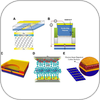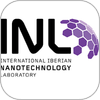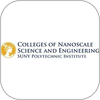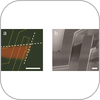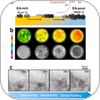nanoelectronics
TERA-print, LLC is a nanotechnology start-up company founded in the fall of 2015 to pursue the unique commercial potential of cantilever-free scanning probe lithography (CF-SPL) technology, which was invented at Northwestern University (NU) and to which the Company has exclusive access. The Company has developed a suite of novel nanofabrication instruments that function as "desktop fabs" and provide researchers with the ability to rapidly prototype structures and devices with an unmatched combination of capabilities in terms of scalability, materials generality, and resolution.
The International Iberian Nanotechnology Laboratory- INL is an Intergovernmental Organisation created to foster interdisciplinary research in Nanotechnology and Nanoscience. Aiming to become a vital part of Europe’s scientific area, INL provides a high-tech research environment addressing major challenges in nanomedicine, nanotechnology applied to environmental & food control nanoelectronics, and nanomachines and molecular manipulation at nanoscale.
The Walter Schottky Institut (WSI) is a central institute of the Technische Universität München (TUM) which was founded in 1986 in order to strengthen the interaction between basic physics and semiconductor electronics research. It became operational in May 1988. The institute building contains laboratories and offices with a total area of about 2400 m2.
In accordance with the vision and leadership of Governor Andrew Cuomo in building New York’s innovation-driven economy, the Colleges of Nanoscale Science and Engineering (CNSE) at SUNY Polytechnic Institute (SUNY Poly) is a global education, research, development, and technology deployment resource dedicated to preparing the next generation of scientists and researchers in nanotechnology.
The James Watt Nanofabrication Centre @ Glasgow houses over £22M of nanofabrication tools in a 750m2 clean room run as a pseudo-industrial operation by 14 technicians and 4 PhD level research technologists.
Glasgow has over 30 years experience of delivering micro- and nano-fabrication (and in particular electron-beam lithography) to develop solutions in processing, nanotechnology, nanoelectronics, optoelectronics, mm-wave & terahertz, bioengineering, biotechnology, lab-on-a-chip, cleantech & energy, photovoltaics, security & defence and a host of other applications.
In 2007, the founders of Adesto Technologies set out to build a new company focused on developing Innovative, Low Power Memory Solutions based on a promising type of Resistive RAM technology called Conductive Bridging RAM (CBRAM). This particular technology is different from other emerging memories in that it can be customized to serve a wide range of applications. In just the last 3 years, Adesto has licensed its technology as an embedded memory to several large SOC (System on Chip) Semiconductor companies and thus enabled them to develop a future roadmap without limitations.

